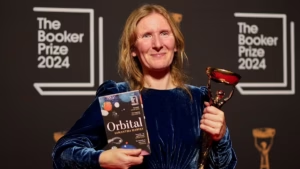Remembering Saeeda Bano – India’s First Female Newsreader on This World Radio Day

The emergence of wireless radio dates back to the 19th century, and since then it gained major popularity all over the world. Throughout the decades, radio has been one of the major mediums of mass communication, and therefore it possesses great historical significance. Furthermore, behind the immense popularity of this traditional media, there are several women around the world, who with the help of radio were able to reach the people out there and subsequently changed the society.
As we celebrate World Radio Day today, let us remember and cherish the glass ceiling broken by Saeeda Bano, who became the first woman radio newsreader in India at a time when our nation just got independence and the horror of partition was all over the place. The doyenne of Urdu broadcasting, Bano left her husband to explore an entirely new path as a working woman in the newly independent India.
Growing up in Bhopal, Bano was married to a judge from Lucknow, while still in her teens. Breaking through the chains of an extremely conventional and secure life, she was courageous enough to choose to live the vulnerable existence of a single woman. Ignoring the criticism of society and forsaking the comfortable life of Lucknow, she ventured out, all alone and arrived in Delhi on 10th August 1947, which is often described as the most tumultuous time in our history.
She had been employed as an Urdu news reader by All India Radio and became the first woman to work as a news broadcaster in India. She didn’t even think twice before putting her life on the line as For a woman to walk out like this, alone – without any male support or approval, back in her times, leaving behind the safety and protection of home and family–was absolutely unheard of. At that time when women were bound to be at home, Bano started her career as a single woman, dealt with a broken marriage, and raised two sons on her own. Overlooking all the gossip and whispers, Bano certainly made her own name as well as inspired numerous women to come forward.
In her 1994 Urdu memoir Dagar Se Hat Kar, which was later translated to English, Bano recalls her long time relationship with a much-married barrister Nuruddin Ahmed, who served as the mayor of Delhi. After over two decades of romance, the two finally tied the knot in the 1970s. Her life was full of thick and thin, however she lived like a queen, that she is. In an interview with Bano’s granddaughter, Raza, she recalls that her grandmother didn’t need male approval or support. “She led her own life, ate her own meals, drove (till she could, then had a driver), lived alone, entertained like a queen!”.
Article written by
-Mohor Bhattacharjee









